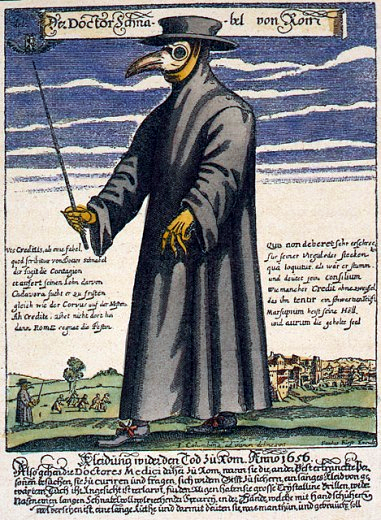Most of us grew up singing the nursery rhyme called ?Ring Around the Rosie?, but most of us don?t know that this song could have originated from the Plague.
A normal part of our childhoods was playing outside during recess and singing nursery rhymes, most of which had games that went along with them.

Ring Around the Rosie was one of those nursery rhymes, where we would all hold hands, stand in a circle, and turn while singing it. In the end, we would all let go of each other’s hands and fall to the floor.
This can bring back so many fond memories for us, but the truth is, this nursery rhyme is speculated to be about the Plague!
The Plague
The Plague, also known as the Black Death or Black Plague, repeatedly swept through Europe from the 14th to 17th centuries. It?s estimated that anywhere between 75?200 million people were killed from the Black Death throughout Eurasia and Europe between 1347?1351. This means that 30?60% of Europe?s population was wiped out in just a few short years!
 The Great Plague of London in 1665. The last major outbreak of the bubonic plague in England.
The Great Plague of London in 1665. The last major outbreak of the bubonic plague in England.
The plague was said to have come from the fleas off the backs of the infected rats that were brought on ships to the European harbours from Central Asia. This was the time where many goods were brought along the silk road ? and apparently also the spread of disease!
There are three types of plagues, but the Black Death was the Bubonic plague, with symptoms such as large black boils in the groin, the neck and armpits. The boils would ooze puss and bleed if they were opened.
Victims of the plague were also said to have other symptoms before the boils appeared, like fever and chills, seizures, muscle pain, headaches, and the development of red rashes on their bodies.
Ring Around the Rosie
Looking at the lyrics to this nursery rhyme will help us to dissect it, and give you some insights into how it?s actually about the plague. (It?s important to note that there are some variations in the lyrics depending on geographic location ? I?ve chosen to go with the one I grew up with.)
Ring Around the Rosie
Pockets Full of Posies
Ashes, Ashes
We All Fall Down
?Ring around the Rosies? refers to the red rings that started to develop on plague victim’s skin. These red rashes, that were circular, would later develop into large, and very painful black boils on the skin. These were normally found in the armpits, groin and neck.
?Pockets Full of Posies? stems from the lack of knowledge at the time about how diseases spread. It was believed that disease was spread through bad smells, which means that people held bunches of flowers to their faces when going out in public, to protect themselves from bad smells.
Plague doctors are associated with looking quite creepy nowadays, but their masks with large beaks were actually because of this belief that disease was spread through foul smells. The beaks of these masks were filled with flowers and other strong scents like bergamot.
 Johannes Ebert and others, Europas Sprung in die Neuzeit, Die groe Chronik-Weltgeschichte, 10 (Gtersloh: Wissen Media, 2008), p. 197.
Johannes Ebert and others, Europas Sprung in die Neuzeit, Die groe Chronik-Weltgeschichte, 10 (Gtersloh: Wissen Media, 2008), p. 197.
?Ashes, Ashes? is said to have 2 possible meanings. The first meaning is that it was meant to mimic a sneezing sound, in reference to being sick. The other is that it?s actually about the burning of the dead bodies from the victims of the plague.
?We all fall down? is about the many people who died from the plague. The falling down is said to represent death, and everyone ?falls down? or dies, because the majority of the European population was wiped out during the time of the plague.
Not The Only Theory
There are a few theories about the origins of this nursery rhyme. Some say it?s related to the plague, some say that it might actually have pagan roots. Others might speculate that it really has no meaning and it?s just a regular kids rhyme and game.
The resemblance to the plague systems and results is pretty clear, and I?d like to think that it originated from this time period. But there really isn?t a way to know for sure, as the sources for this rhyme have been long lost.
This blog is written out of the l??ve of History and sharing knowledge!
Sona Kerim is a Copywriter and Educator who has degrees in History, Philosophy and Education.
You can find her on Linked In or on Facebook!

